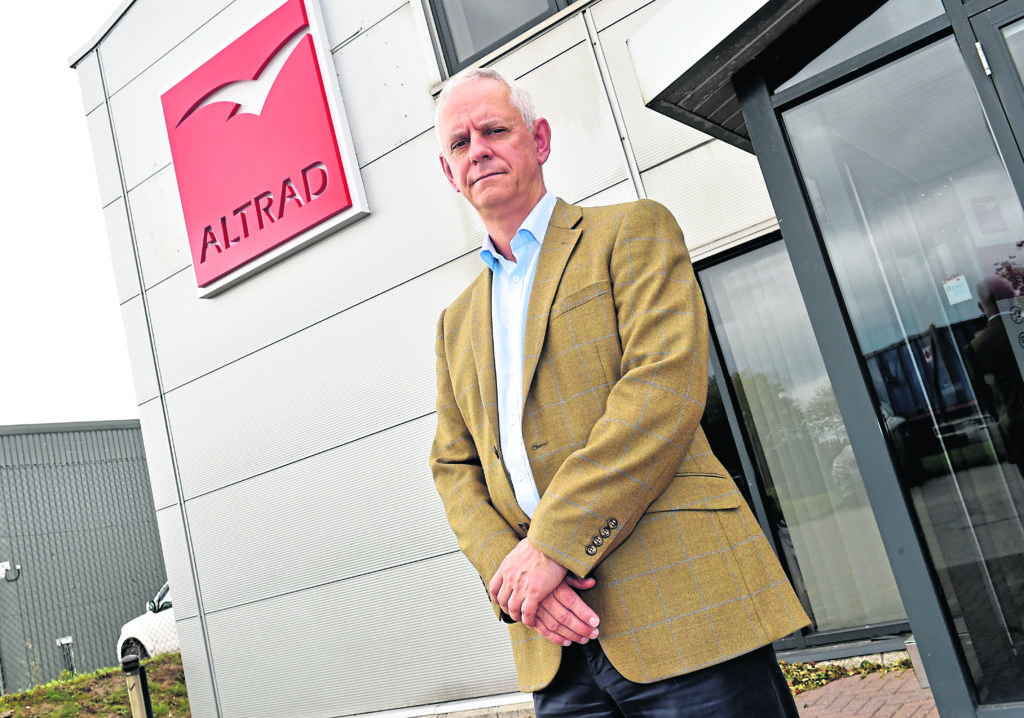
Think of Cape, think of scaffolders.
That’s what most people did when the energy service company came up in conversation.
But in the wake of the Middlesex-based firm’s takeover by French construction equipment manufacturer Altrad, it might be time to consign that idea to the dustbin.
Montpellier-based Altrad – founded and led by Syrian-born, rugby-mad billionaire Mohed Altrad – bought Cape last year in a £332 million deal.
Earlier acquisitions of scaffolding contractor NSG UK in 2011, maintenance services firm Hertel in 2015, and oil and gas contractor Prezioso Linjebygg in 2016 had significantly changed Altrad’s make-up.
Before the first of those transactions, it almost entirely focused on manufacturing goods.
Today, 80% of its business comes from industrial services, supported by 39,000 employees in 100 countries.
The group’s core markets include oil and gas, liquefied natural gas, nuclear and power generation, naval and construction, and renewable energy.
At the start of September, Altrad announced that it had combined Cape, NSG and Hertel to create Altrad Services, a single business which is described as the UK’s largest industrial services provider to the petrochemical, energy and infrastructure sectors.
Altrad Services employs 8,000 people has three distinct business lines – maintenance, modifications and overhauls (MMOs), projects and nuclear.
It has 600-700 staff members in the UK North Sea and East Irish Sea, providing services for the likes of BP, Eni, Perenco, Petrofac and Spirit Energy. Mike Pettigrew, executive director, projects, upstream and specialist services at Altrad Services, said the sum of those parts was “quite something”.
“Most people looked at Cape and thought only of scaffolders, but within Altrad we now do a massive range of services,” said Mr Pettigrew, who is also chairman of the Offshore Contractors Association.
“Put it all together and you would be recognised by most majors as a player. Maybe Cape on its own was not.
“We have a great balance and can have different discussions with customers and take more responsibility for delivery. There’s a range of services we can supply globally. It is a huge multiplier.
“So it’s a good time to relaunch what we do under a different brand.”
The company’s “app” says it provides around 20 different services on offshore installations.
Mr Pettigrew said Cape actually offered most of those services before the acquisition.
He is excited about the business’s internal caisson cleaning and inspection service, developed in partnership with Sonomatic.
Altrad Services’ new “torpedo” device can operate below sea level to remove scale and marine growth from caissons and return it to the deck for disposal.
The business is also pioneering a unique caisson repair solution which is “properly innovative”.
He said: “If a caisson is damaged or has small holes, the traditional way of repairing it is swaged liners. It is literally rings of steel which lock together and you build up a new caisson inside a caisson.
“The problem with that is it’s extremely expensive and takes a long time. It’s extremely heavy and doesn’t bond the original structure to the new structure and it can’t go round corners.
“We came up with a solution. We put down an infused composite liner or coating in a tube. It’s effectively a long sock which we fill with water to push the liner to stick to the caisson.
“We can make this liner as thick or as strong as we choose, but it’s much lighter and is less intrusive. We can do it very quickly, in seven to 10 days, and time is of the essence with these things.
“It bonds the original structure to the composite, so there’s no risk of it falling away. It excludes water so there’s no more corrosion and it can go round corners, which some caissons do.”
The system was put to the test on Shell’s Shearwater platform and Altrad Services is now talking to “almost everybody” in the North Sea about the service, Mr Pettigrew said.
He joined Cape two years ago from Babcock International, where he spent 13 years working in a number of divisions, including warships and future business.
He said the last few years had been tough in the North Sea and believes the tendency towards boom and bust must end.
“I’m not speaking out of turn,” he said. “When you get down to $29 per barrel everyone squeezes everything.
“You move into survival mode. That’s where ourselves and our competitors have been. Just wash our faces and survive until times get better.
“Oil is just a commodity. It can go up and down, so it’s better to build a business for the long term.
“Higher oil prices are good, but not if industry makes the same mistakes as in the last upturn.
“We could see an upturn in capital investment. If there are more capital projects, then, generally, there is more demand and things will improve.
“But I suspect the big capital projects are still three years off. You still need to go and build the platforms and get it over. It’s only then that you get the big hook-ups.”
Recommended for you
